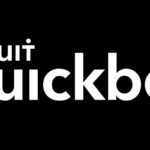Podcast: Play in new window | Download | Embed

I’m going to share with you a very common piece of advice ironically given by the more proactive accountants that may seem great from a tax point of view, but can totally mess up your cashflow.
To download the audio file to your computer, please right click on this link and choose save link as, or save target as, depending on your browser.
If you would rather read while you listen or you prefer to just read without the audio or video, we have provided the full transcript further down the page for you.
Be a part of the Financial Gym Inner Circle for Free and be one of the first to get:
- Updates on ways to improve your day to day business money and productivity issues
- Real life stories
- Free video tips and tutorials
- Downloads and templates to keep and use in your business
Click here to subscribe to my mailing list
Resources and Items Mentioned
Check out Resources – Georgette Recommends page.
Transcript
Today I am going to share with you how a very common piece of advice often given by accountants (ironically the proactive ones) which makes complete sense from a tax point of view can totally mess up your cash flow in the short term.
Oh boy am I going piss off a few accountants today?!
Yes your advisors are the professionals, but it is you work in your busy on a daily basis, so you will always know things about what is going on that they don’t.
Your accountant may be giving you advice that is based on your past performance, but have no idea what is happening going forward and create a financial problem you can avoid.
So what is this piece of advice you should be wary of? Allow me to demonstrate.
Accountant – “I have looked at your figures so far and you are making a lot more profit than expected”
Client – “That’s good isn’t it?
Accountant – “Yes that’s great. The only thing is that means you have quite a bit of tax to pay”
Client – “Oh no, I want to keep the tax bill down, what can I do?”
Accountant – “Well luckily you have not reached the end of your financial year yet so you have time. I would suggest you spend some money before then to reduce your profit.”
Now you may be asking why on earth that would be a problem.
And you would be right.
After all to get this advice in the first place would indicate 2 very positive things:
1. You have a proactive accountant who doesn’t wait until your financial year has passed to tell you what you should have or could have done.
2. The less tax you have to pay the better.
Well yes, but I have seen people spend ten grand on a piece of equipment to avoid paying two grand in tax. This is a very simplistic example just to make a point so don’t get hung up on the actual amounts.
Now while this may actually reduce your tax bill, depending on what method you use to buy the item, it may also reduce your available cash.
Don’t even get me started on the implications of going down the credit route.
Now if your business is:
- flush with cash and the expenditure doesn’t affect your day to day money requirements
- or the item you are buying is something you really do need and would have bought anyway
- or it is something that will help you make more money
Then what the hell, spend away.
But if spending the money will affect your ability to cover your day to day running costs then it is a different story altogether.
The basis of the advice is based on what your advisor gets from your profit and loss report.
A profit and loss report may show you how much profit you make but it does not show you your cash position.
- It does not tell you how much of the money you made has actually been received by you
- It does not show you how much of it you are unlikely to receive due to bad debt clients
- And whether you have enough money on an ongoing basis that can comfortably cover your normal expenses let alone any additional purchases.
Some of this your accountant can determine from your balance sheet but that is still only a snapshot in time.
Historical time at that.
So to use my oversimplified example:
You spend ten grand on a vehicle or piece of equipment and yeah you slash your tax by two grand. But you are still eight grand down in your cash at bank for an item you may not actually need or want.
Now I know as a matter of principle you may well resent giving the two grand to the revenue, but personally I would rather do that and keep my other eight grand in the bank.
So FESS UP or MESS Up lesson for today.
“Don’t prioritise avoiding tax over saving money”






Really good points made in this video Georgette. One I thing I come across as a Welfare Benefit Advisor is when people are advised that they don’t need to pay NI contributions as they don’t earn enough. Or they don’t pay them on time. However when it comes to claiming contribution based welfare benefits because they are unable to work, they then don’t qualify for anything, especially when they have partners that work. So my advise is ALWAYS pay your national insurance contributions regardless of whether you are a low earner as it may not pay in the long run if you can’t work and have no income protection either.
Thank you for taking the time to comment. Good insights. Best Wishes